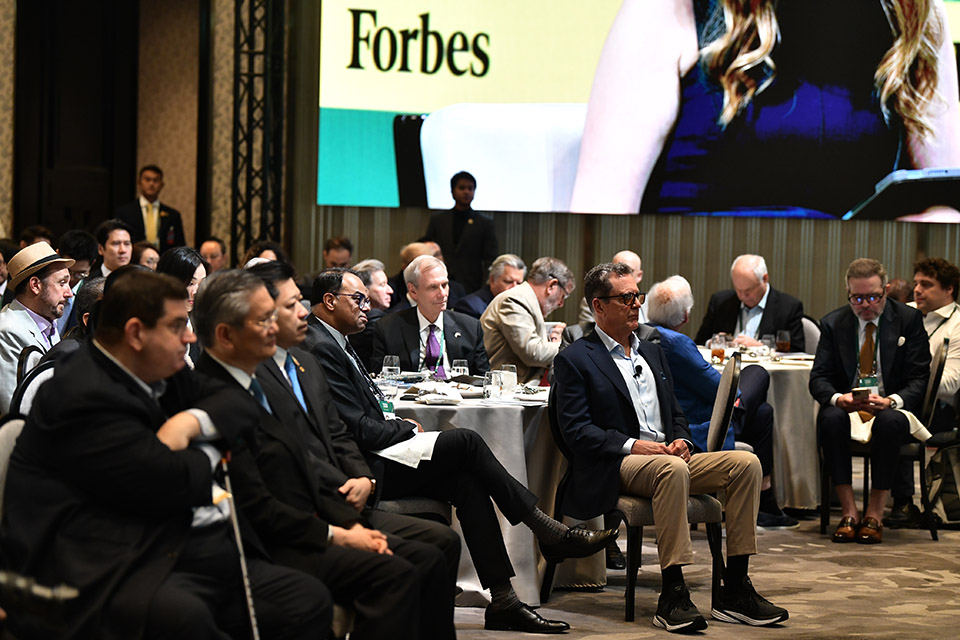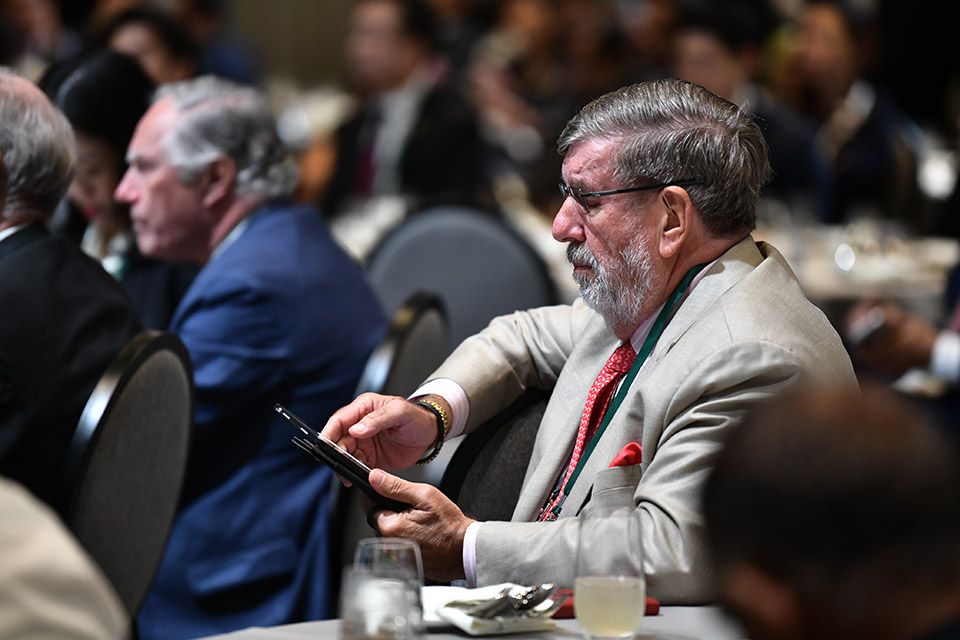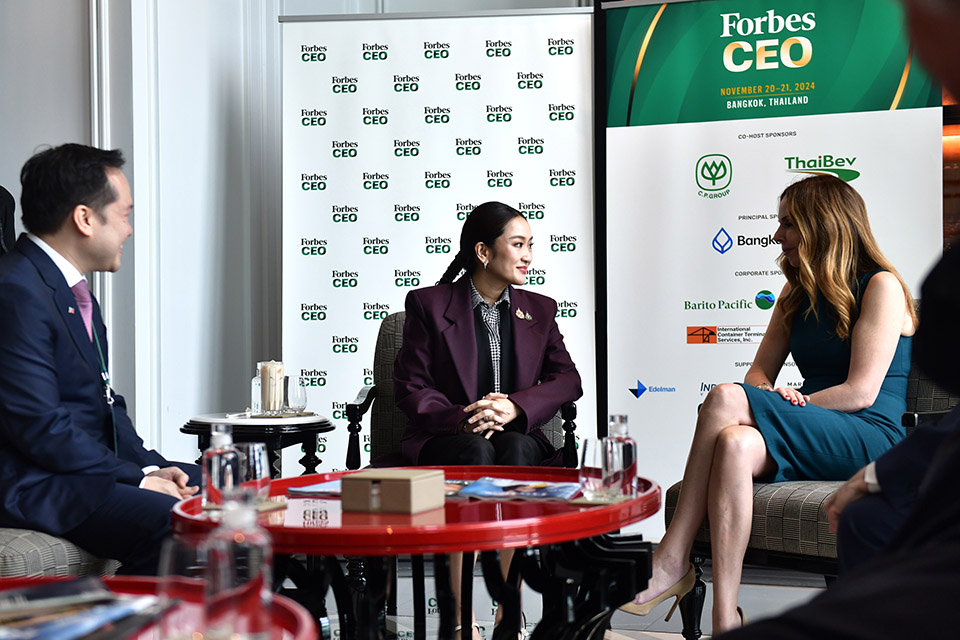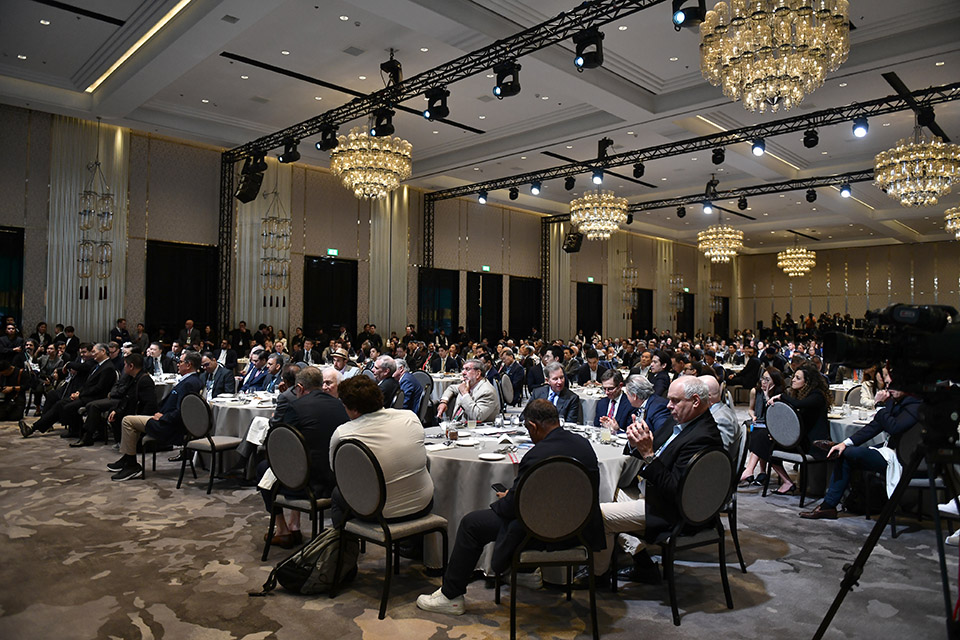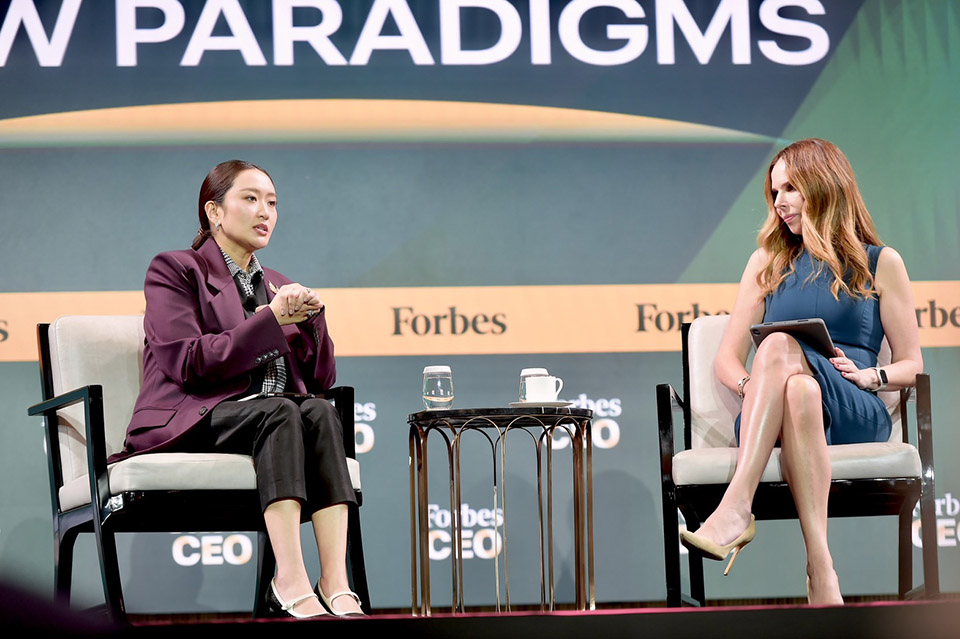
BANGKOK, Thailand – Thai Prime Minister Paetongtarn Shinawatra highlighted her vision for propelling Thailand toward becoming a regional economic hub during a one-on-one conversation with Moira Forbes, Executive Vice President of Forbes Media and President of ForbesWomen on Thursday, November 21, at The Ritz Carlton, One Bangkok.
The discussion took place at the 22nd Forbes Global CEO Conference, attended by over 400 global business leaders, entrepreneurs, and investors.
Driving Economic Growth and Infrastructure Development
Government Spokesperson Jirayu Huangsap revealed that PM Paetongtarn underscored Thailand’s commitment to enhancing economic competitiveness through short, medium, and long-term measures. These include improving infrastructure, fostering ease of business and travel, and addressing household and SME debt restructuring.
Major global tech giants such as Amazon, Google, and Microsoft have recently announced significant investments in Thailand, focusing on cloud infrastructure and artificial intelligence (AI). This includes the establishment of data centers. The government is implementing policies to facilitate these projects and strengthen public-private partnerships in key sectors like digital economy and connectivity.

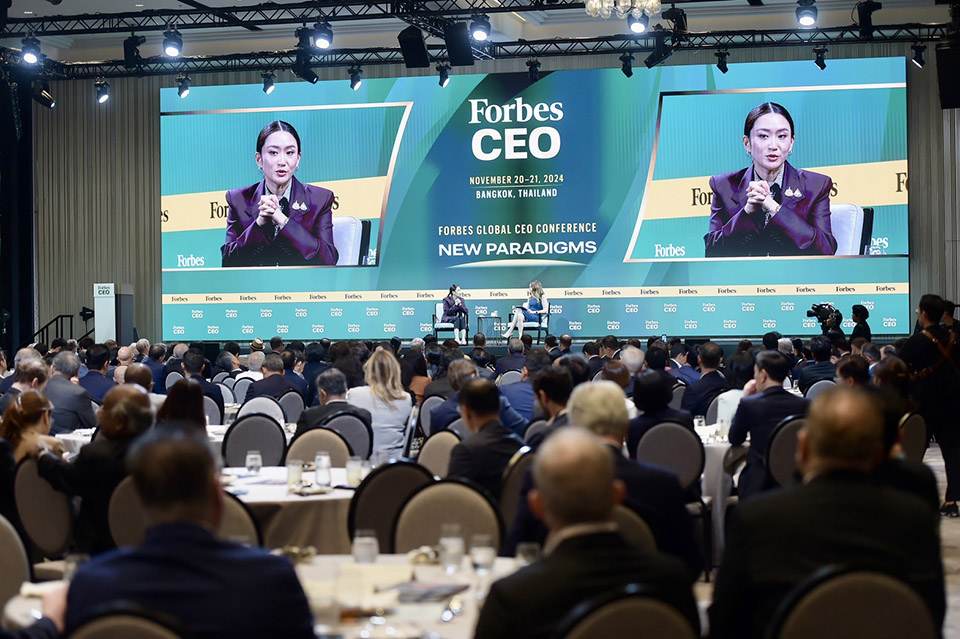
Strategic Partnerships and Regional Hub Ambitions
The Prime Minister emphasized Thailand’s strategic location in ASEAN and its robust infrastructure, food security, and skilled workforce. These strengths position the nation as a pivotal partner for long-term regional growth. Thailand’s neutrality and adaptability have also made it an attractive destination for global investors.
“We have successfully attracted investments from global tech leaders such as Amazon, Google, and Microsoft, thanks to support from the Board of Investment (BOI). Additionally, Thailand prioritizes investments in education and workforce training to develop highly skilled individuals,” she stated.
Soft Power and Cultural Excellence
PM Paetongtarn also highlighted Thailand’s exceptional craftsmanship and rich cultural heritage as vital components of its soft power strategy. The government is leveraging this heritage to enhance economic value through upskilling and promoting the creative industries on the global stage. This includes proactive foreign policies aimed at fostering 14 key creative industry sectors.
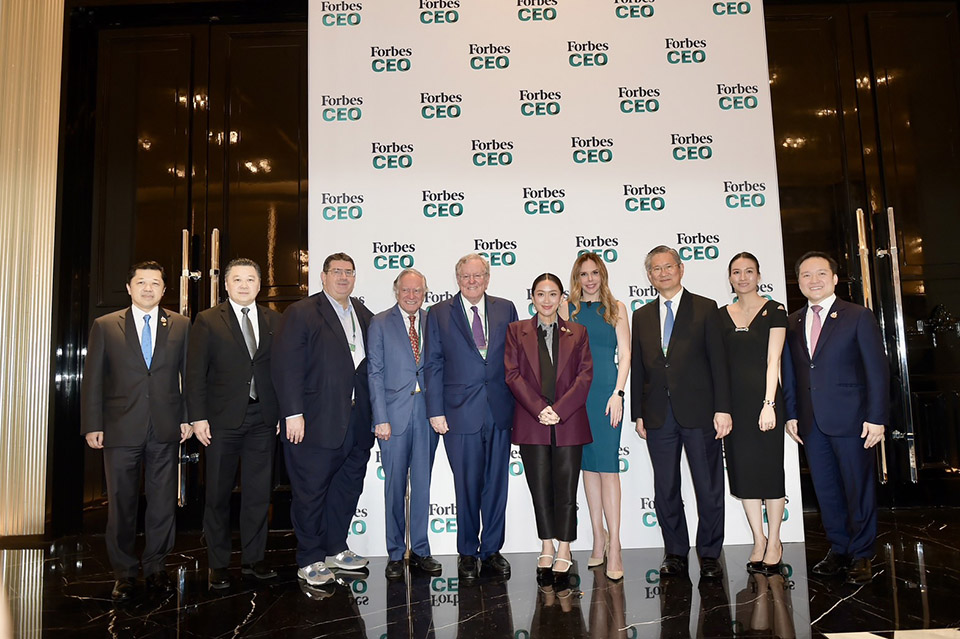
Balanced Trade Relations and Strategic Industries
Thailand’s balanced relations with both the United States and China were a focal point of the discussion. Collaborative efforts in critical industries such as smart electronics, semiconductors, AI, and creative economy underline the government’s dedication to strengthening economic partnerships.
Vision for Sustainable Growth
Concluding her address, PM Paetongtarn reiterated her government’s vision of investing in education, skills development, and healthcare to build a dynamic, technologically advanced, and sustainable economy. She stressed the importance of fortifying Thailand’s soft power to transcend the middle-income trap, thereby attracting investors and entrepreneurs from around the globe. (PRD)
